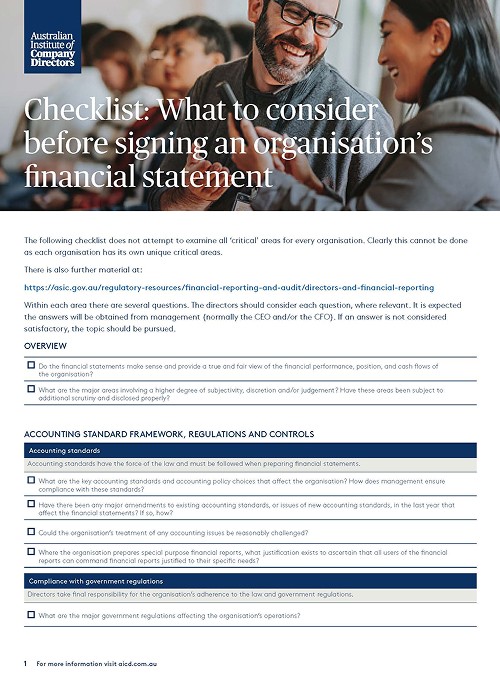
Companies have a legal responsibility to keep written financial records and to regularly report to members their financial performance and position. This duty is placed on companies, not directors. Directors, however, in effect represent the company and have a duty of care to ensure that these statements are an accurate representation of the company's financial affairs. In confirmation of this, a director is required to sign a declaration to this effect.
The Corporations Act 2001 (Cth) (Act) sets out statutory requirements for financial reporting. Responsibility for monitoring financial affairs is often delegated to the board’s audit committee. The audit committee reviews the financial integrity of the company via effective internal control processes and accounting policies that reduce the risk of irregularities or fraud. Although authority is delegated, the board retains collective responsibility for financial matters. This was emphasised in the Centro case (discussed in a later section of this paper): approving financial statements is a core duty for all directors and one requiring them to apply their overall knowledge of the company’s affairs in forming an opinion as to approving financial statements.
Directors must make a declaration in the Directors’ Report that the financial statements comply with accounting standards, are true and fair and that the company is solvent. When signing financial statements, directors should keep in mind that they can face civil and criminal penalties for failing in their duties. These penalties may take the form of fines, disqualification or a compensation order. Directors are responsible to take reasonable steps (s 344 of the Corporations Act 2001) and those steps will depend upon “the company, the complexity of the company’s business, the internal reporting procedures within the company, and the nature of the task the director is obliged to undertake”.
Latest Director Tools
Already a member?
Login to view this content

